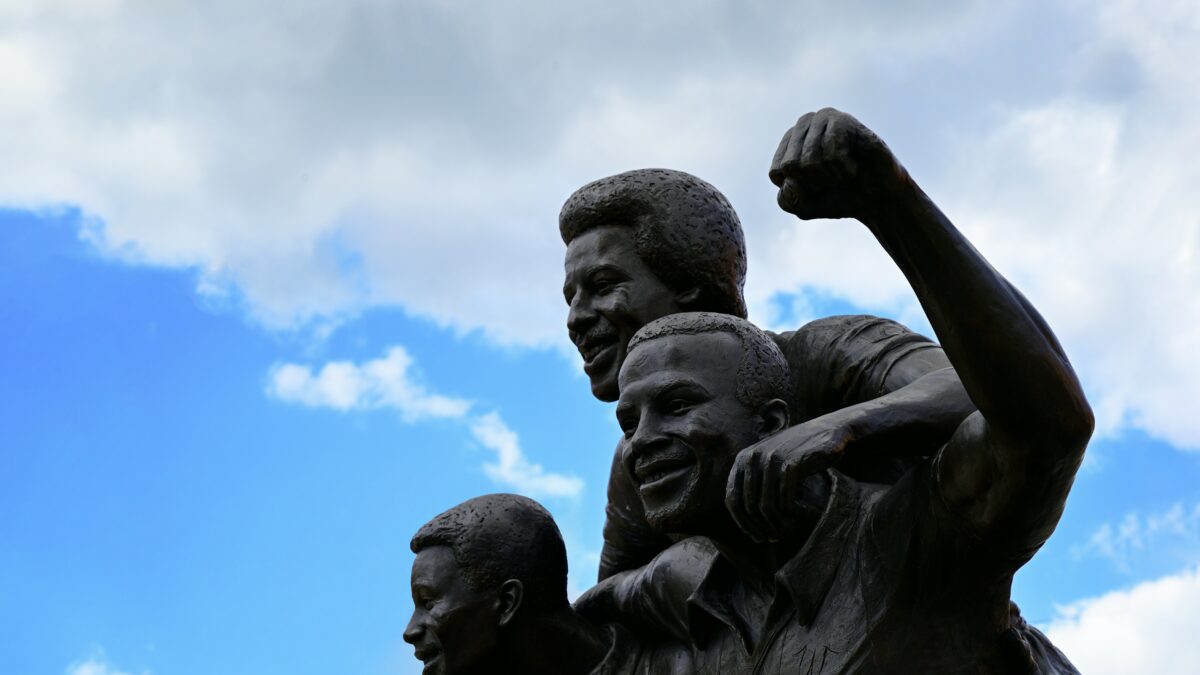
International Women’s Day in the Legal Profession
March 6, 2024
The Effects Of Poverty And The Cost-of-Living Crisis, and What Governments and Businesses Can Do About It
March 6, 2024By Abigail Wonga.
Reading time: four minutes
‘’For me, the history of the place of Black people in this country is so varied, complex and beautiful. And impactful.” – Toni Morrison, The Pieces I Am.
Originating in the United States, Black History Month is an annual observance celebrated in February and October (United Kingdom and Ireland) to remember important people and events in the history of the African diaspora. Black History Month is celebrated in the United States and other parts of the world in February. This is a month where achievements made in the black community are rightfully recognised, and allies join their black counterparts on the continuous historical landmarks black people have made.
Celebrating Black History Month – not just a month!
However, black history should not only be acknowledged for just one month. February alone contains 28 days (29 now as it is a leap year)! Black history in the United States alone resides in the transatlantic slave trade. The recent police brutalities in the States, causing the murders of George Floyd, Breonna Taylor and many more lives, convey American civilisation being revolved around black lives. Until there are solutions for these injustices against black lives, black history will continue to shape America today.
The Washington Post reports, ‘’According to the American Bar Association, about 5 per cent of all lawyers are Black — and that number has been stagnant over the past decade — even though about 14 per cent of the U.S. population is Black.’’
Forbes adds, ‘’Countless systemic barriers to entry exist, preventing Black people from pursuing and attending law school. When 13% of the American population is African American, but only 5% of lawyers are Black, Black people are not being fairly represented in the justice system.’’
When the only form of legal representation of Black people are being shown as the most incarcerated racial group in prison, the belief of the sky being the limit seems unattainable.
Law firms in the US and the UK and barristers’ chambers (UK), should be aware of the barriers which affect minority groups pursuing careers that money, power and status can easily buy. This blog post intends to focus on black history in the US, instead of black history in the UK. Representation matters on all fronts. The need for more African American lawyers is crucial to promoting fairness, equality and impartiality in the legal system.
A career which promotes diversity and equality of opportunity brings in inclusivity and anti-racist stances. As the CEO of Equal Justice Works Verna Williams mentions, ‘’Simply put, representation matters. Diversity in all its dimensions, including gender, ethnicity, economic status, and race, matters because the law and the legal system touch all parts of our society. If our laws and justice system continue to be shaped by the few, [they] will continue to only serve the few and engender respect from even fewer.” She added, “Black lawyers are critical to constructing a justice system that serves all people. [The] very presence of Black lawyers in courtrooms, judges’ chambers, or press conferences countered ugly stereotypes justifying racial subordination.’’
The remainder of this post will focus on eight African-American legal trailblazers to celebrate black history month in the United States, as this significant month will come to an end, but the historical revolutions of black lives keep on taking space.
Eight African-American Legal Trailblazers
- Macon Bolling Allen – Considered to be both the first African American attorney to practice law in the United States and to hold a judicial position. He passed the Maine bar exam in 1844, but racial prejudice in Boston kept him from making a living as a lawyer, so instead, he embraced a rigorous qualifying exam and became Justice of the Peace of Middlesex County, Massachusetts in 1848. In doing so, Allen became the first African American in the United States to hold a judicial position, despite not being considered a U.S. citizen under the Constitution at the time.
- Thurgood Marshall – Thurgood Marshall was the first African American justice of the Supreme Court, serving from 1967 to 1991. After studying law at Howard University, Marshall went on to serve as counsel to the NAACP. In 1954, he won the seminal case of Brown v. Board of Education, which signalled the end of racial segregation in American public schools. In 1967, President Lyndon Johnson nominated Marshall to serve on the United States Supreme Court. Initially, the makeup of the court allowed Marshall to be an influential liberal voice on landmark cases including Roe v. Wade and Furman v. Georgia. However, as Republican presidents appointed eight consecutive conservative justices, the court took on a decidedly different tone, and Marshall’s later tenure was defined more by his dissents defending the liberal principles that had since been overturned.
- Jane Bolin – The first African American female judge in the United States, Jane Bolin earned her J.D. degree at the Yale Law School in 1931, where she was also the first African American woman to graduate.
- Constance Motley – the first African American woman to be appointed as a federal judge.
- Barack Obama – Harvard Law School graduate and in 2007, he began his presidential campaign and became the first-ever black president. He was elected a second time in 2013 and remains one of the most celebrated presidents in history.
- Fred Gray – He is arguably one of the most important African American lawyers in history for his significant career as a landmark-setting civil rights attorney.
- Ketanji Brown Jackson – American lawyer and jurist who is an associate Justice of the Supreme Court of the United States, making her the first Black woman and first former federal public defender to do so.
- James Weldon Johnson – civil rights activist, leader of the NAACP and first African American attorney to pass the Bar in the state of Florida.





